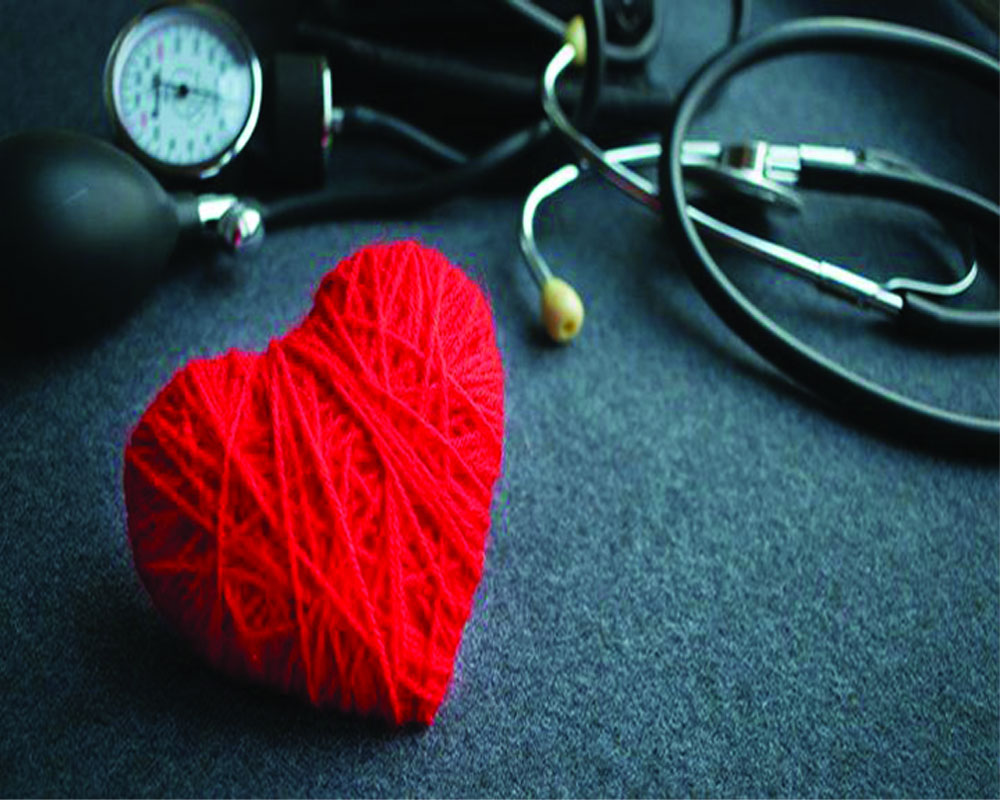The World Hypertension Day was on May 17. Doctors suggest ways how to keep your blood pressure in check and fight the disease
Hypertension is one of the major public health problems in our country and its prevalence is steadily increasing among both urban and rural populations. Given the fact that hypertensive patients often lack pronounced external symptoms, the condition is considered a 'silent killer.' It is a significant risk factor for potentially dangerous conditions such as stroke, heart attack, heart failure, encephalopathy, and kidney failure.
High blood pressure is often mismanaged, and the approach to treating it as a disease rather than as a symptom of underlying problems is the main reason. Modern medicine seeks to control high blood pressure through medications such as ACE inhibitors, Diuretics, Beta-blockers, Calcium channel blockers, among others. While these drugs do help in controlling blood pressure and thereby lower the risk of heart attacks and strokes, they do not address the underlying cause of high blood pressure.
The naturopathic approach focuses on ascertaining the characteristics of hypertension — vascular relaxation, sodium sensitivity, autonomic dysfunction, arteriosclerosis, and addressing the underlying cause via lifestyle and dietary modifications, stress management and herbal supplementation. If you visit a naturopath, they will order tests to check your kidney function, thyroid function, or look for inflammatory markers in the blood. Your cardiovascular risk factors will also be assessed in-depth as they are usually associated with hypertension. Adiposity, insulin resistance, sleep apnea, and systemic inflammation are all considered in the workup.
Dietary interventions: Dietary modifications are among the most commonly prescribed interventions for most lifestyle diseases, and hypertension is no different. Specific nutritional systems like the DASH diet and the Mediterranean diet are among the fundamental strategies to control high blood pressure and associated conditions like Type II Diabetes, insulin resistance, and obesity. The Mediterranean diet comprises of fresh fruits, vegetables, whole grains, nuts and legumes, with minimal dairy intake. The diet has a favorable effect on hypertensive patients. A number of large scale studies have shown significant reductions in both the systolic and diastolic blood pressure measurements. The DASH diet promotes a balanced nutritional system that supports a heart-friendly lifestyle. It focuses on a diet rich in whole foods with an abundance of fruits and vegetables, fat-free dairy products, whole grains, nuts, beans, and vegetable oils. The program restricts the consumption of foods rich in saturated fats, including full-fat dairy and palm. Additionally, sodas, desserts, and foods with artificial sweeteners are to be avoided. Compared to other dietary systems like low carb diet, paleo diet, low fat and others, the DASH diet has proven to have the most positive impact on blood pressure.
Stress management: Since stress and over-stimulation of the sympathetic nervous system play a significant role in hypertension, it is imperative to keep it in check. High-stress levels can boost your blood pressure by stimulating your sympathetic nervous system, which leads to a series of cascading physiological effects, causing the constriction of blood vessels. Fortunately, it is possible to manage stress through a set of non-pharmacological interventions like meditation, acupuncture, and biofeedback, all of which help bring down high blood pressure. Regular exercise also helps keep stress under check. It reduces the level of stress hormones like adrenaline and cortisol, and stimulates endorphin production, elevating the mood and promoting analgesic effects. Staying active can bring down your systolic blood pressure by up to eight millimeters of mercury.
Botanical supplements: Several herbs can help promote healthy blood pressure. Hawthorn extracts have proven cardiovascular benefits, including anti-inflammatory and antioxidant properties. It also supports healthy lipid metabolism, increases vasodilation and protects the lining of blood vessels in the body. Garlic is another herb that can regulate the level of nitric oxide, reduce inflammation and act as an ACE inhibitor.
Indian snakeroot, also known as serpentine wood, has several anti-hypertensive effects. According to a study published as early as in 1949, 40 out of 50 participants who were administered the herb experienced a noticeable drop in blood pressure. Moreover, the herb's hypotensive action was perceptible for two weeks after discontinuation in over 90 per cent of the participants.
Although there are a number of natural treatments available to manage blood pressure, the exact combination of treatments is best decided by a licensed and trained naturopath. A proper diagnostic work-up includes a physical exam, a complete medical history, lipid profile, and lab testing to uncover the cause of hypertension.
The writer is Dr Srikanth HS, Senior Naturopath, Jindal Naturecure Institute
Yoga shows way
Practising yoga nidra: It is best advised to maintain sleep hygiene. An average adult should get at least seven to nine hours of sleep. A proper sleep schedule stimulates balanced metabolism, hormonal balance, avoids palpitations, chronic diseases which are directly proportional to balanced blood pressure. It has been proven that a 30 minutes session of yoga nidra is equivalent to two hours of quality sleep. yoga nidra helps to relax and rejuvenate. People who struggle with sound sleep at night, stress or anxiety because of work, can indulge in the practice of yoga nidra. Certain apps have guided meditation and/or yoga nidra as a part of guided meditation and promises to make your experience worthwhile and prodigious. Yoga nidra thus releases stress and hence keeps you from having high blood pressure.
Measure your health parameters regularly: The symptoms of hypertension are not often visible. Hypertension develops over a period of time. And when you cannot notice the symptoms clearly you use certain IoT devices that can help in easily monitoring your health. And monitoring your health regularly gives you the current status that will help you make amends, and move in the right direction. Because ignorance is not always bliss!
The writer is Dr Gulshan Kumar, Neurophysiologist, National institute of Mental Health and Neuro Sciences


























